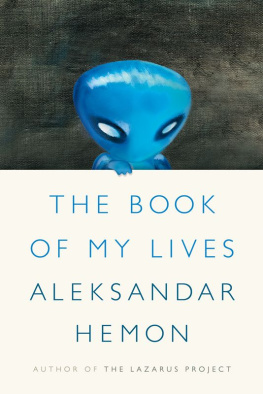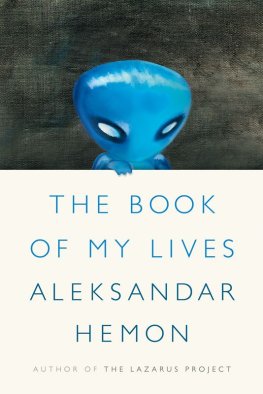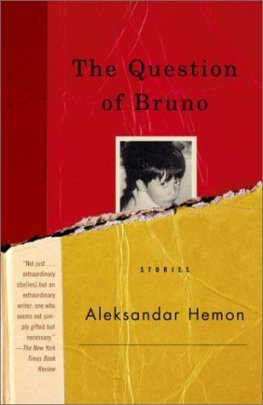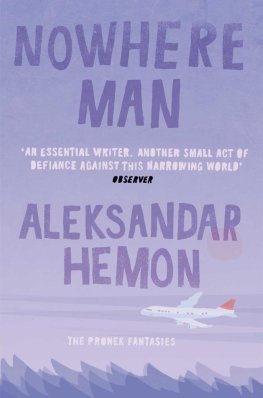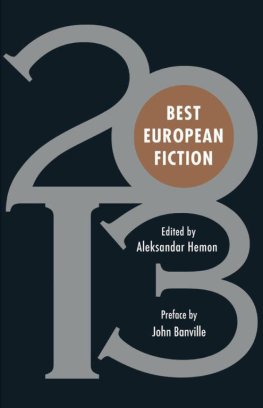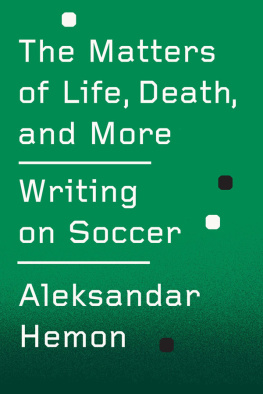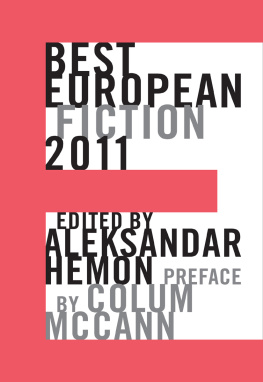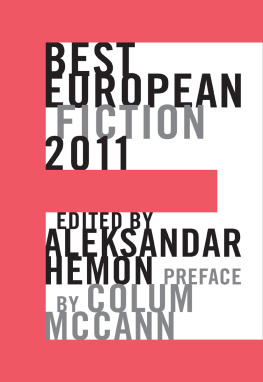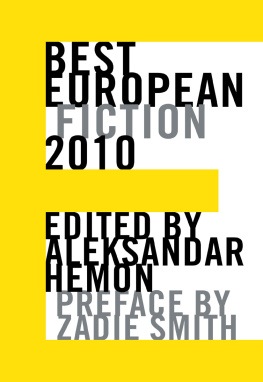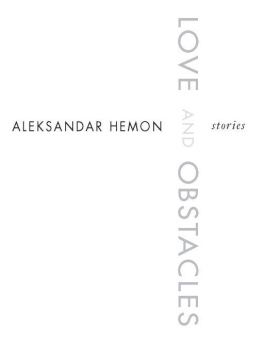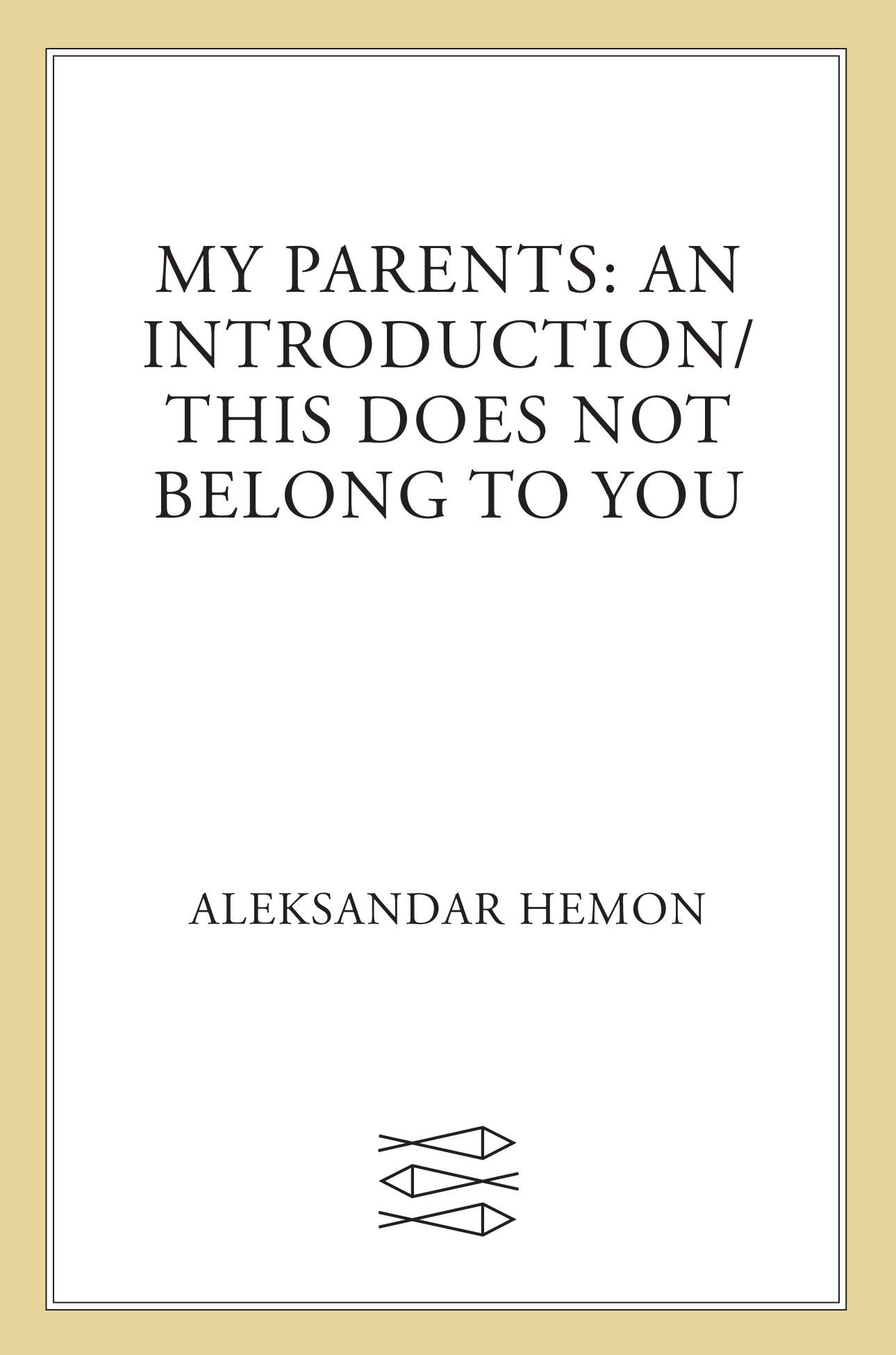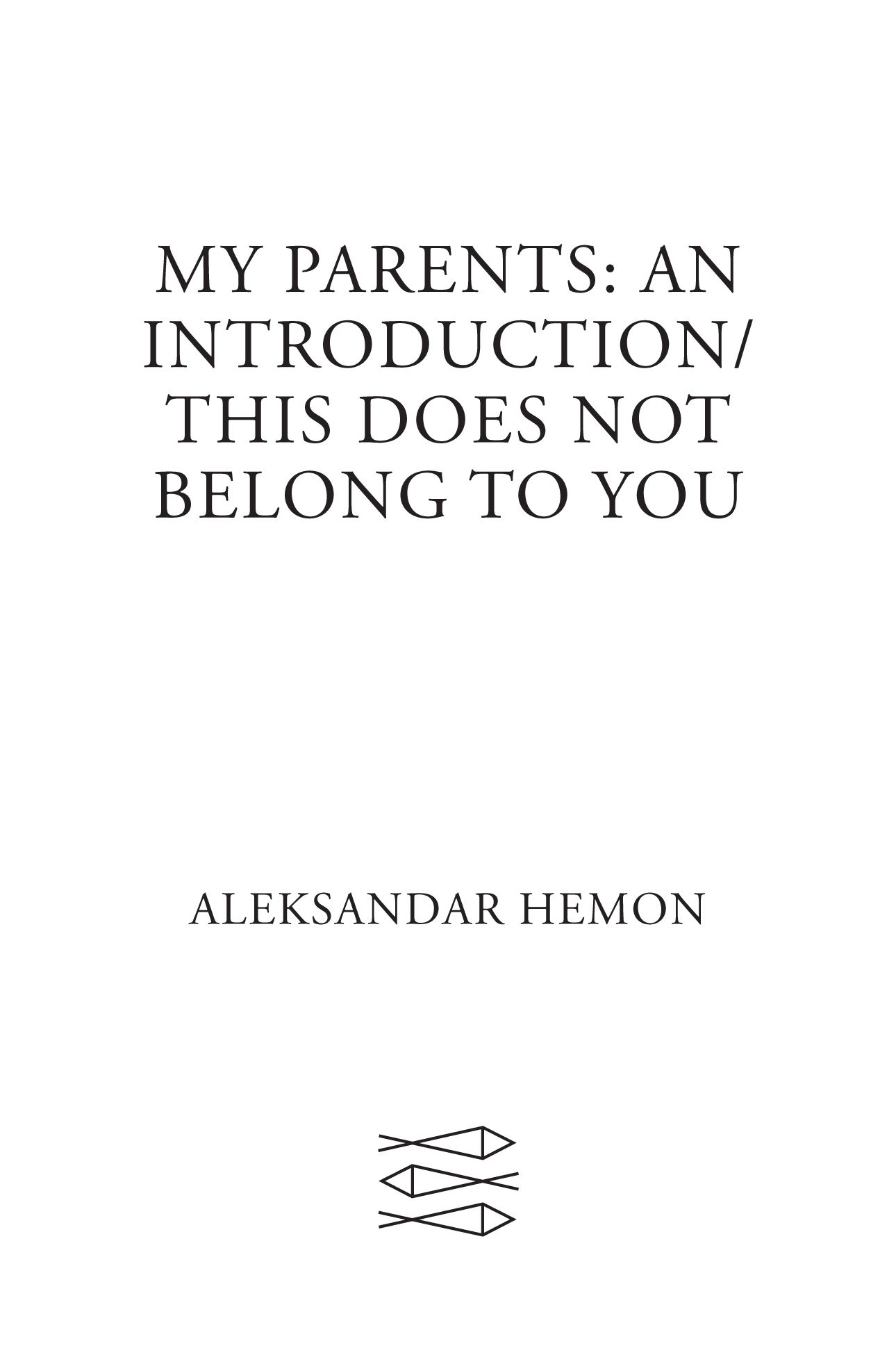The author and publisher have provided this e-book to you for your personal use only. You may not make this e-book publicly available in any way. Copyright infringement is against the law. If you believe the copy of this e-book you are reading infringes on the authors copyright, please notify the publisher at: us.macmillanusa.com/piracy.
The story goes that my mothers grandfather ivko was going back home on his horse-drawn sleigh after a winter night of drinking and gambling, when he ran into a couple of terrifying giants blocking the path. He owned a lot of land, a provisions store, even had servants; he was rich and therefore imperious and arrogant. He determined that the giants would destroy him if he stopped, so he stood up on his sleigh, whipped forth the horses, and rushed at the creatures, who stepped aside to let him through.
His daughter, Rua, married my grandfather Stjepan ivkovi, who would never run into a giant and whose family was not rich at all. The marriage was not arranged, which was uncommon in northeast Bosnia at the time (1921 or so), when marital bliss was inseparable from the goods and properties transacted between the brides and grooms families. Mama believes that love was involved: Ruas father disowned her for going against his wishes. Rua and Stjepan would have seven kids; my mother, Andja, born in 1937, was the youngest.
When she was four, Mamas older brother ivan was playing a game with his friends that involved smacking a piece of wood with a stick (klis). The piece of wood hit him in the belly; he was full after lunch; his stomach ruptured and he died. The story doesnt quite add upthe piece of wood couldnt have been that heavybut that was what my mother was told. When sorrows come, they come not as single spies, but in battalions: right around the time of ivans death, World War Two entered Yugoslavia by way of the invading Germans. Mamas oldest brother, Bogdan, was nineteen when he joined the partisan resistance movement. Mama remembers that whenever she woke up in the middle of the night during the war years, shed find Rua awake, worrying about her eldest son, swaying to and fro on her bed like a Hasid.
The war was complicated in Bosnia, as all its wars have always been, as all wars always are. In addition to the Germans, Titos partisans had to fight against the royalist Serb forcesthe etnikswho openly collaborated with the occupying forces, busying themselves mainly with massacring Muslims. My mothers family is ethnically Serb, and the area where they livedthe village called Brodac near the town of Bijeljinawas solid etnik territory. Much of Ruas family supported the etniks too, by a kind of default that comes with being rich and arrogant. Stjepan, on the other hand, would not have any of that, and not only because his eldest son was a partisanhe was also just a decent man. The etniks would occasionally come by to look for Bogdan, and when they couldnt find him theyd harass Stjepan. He once hid, in a pile of manure, a box of ammo air-dropped by the Allies in order to deliver it to the partisans. But someone informed the etniks, who beat my grandfather into a pulp, demanding to know where the ammo was. He told them nothing; they took him to a detention camp and wouldve likely slit his throat if Ruas family hadnt intervened; he would subsequently be under house arrest for six months. Another time, toward the end of the war, Stjepan gave his only horse to a wounded young partisan on the run. The young partisan promised he would return the horse; he never did, but Stjepan would never regret helping a man in trouble. He must have imagined that someone else, somewhere else, could in the same way decide to help his son.
My uncle Bogdan did manage to survive the war, and was in the unit that fought at the Sremski Front, in the difficult battle that ensured the defeat of the German and collaborator forces and the liberation of Belgrade. As a machine gunner he was always a prime target; he received a bullet in his chest, while two of his assistants were shot dead next to him. A lung had to be removed, and he would never be entirely healthy again. Nor would Rua ever sleep again, at least not until her death.
Mama was a child when the war ended, but she would never talk about being scared or traumatized by it. Neither did she tell any childhood stories: there were few adventures, she had few animal or human friends, she did not even get into trouble with her siblings. Narratively speaking, Mama did not have a childhood. First she was in the war, the littlest of the kids, and then, with the end of the calamity, a moot but exciting future opened up for her and she had to leave her childhood behind.
In 1948, when she was merely eleven, she moved to attend middle school in Bijeljina, five miles and very far away from her village. She lived in a rented room, Then, as ever, she was a devout and conscientious student.
In 1957, she went to college in Belgrade, the capital and the biggest city in Yugoslavia, some eighty miles and a century away from Brodac. She at first resided with three other young women in a dorm room in Studentski grad (Student City). She subsisted on a modest stipend, with little money and few possessions. But she had fun, and still likes to reminisce about the beauty of communal youth, about the ethos of sharing everythingmeals, clothes, experienceabout the sense that, despite manifest poverty, there was nothing lacking.
There were dances (igranka) at the university cafeteria, featuring one Mirko ouc and his rock n roll band; she would sometimes go to two dances in a single night. U.S. movies played in the theaters, if with several years delay. Esther Williams reigned; a post-Stalinist Soviet film about love and war (and rape), would make an entire theater sob in unison. They also watched Yugoslav movies, as the countrys cinema was going through one of its golden periods.
The plot of Ljubav i moda (Love and Fashion), for instance, revolved around the young people organizing a fashion show to fund their gliding club. The movie opens with a tracking shot of a hip young woman riding a Vespa on the streets of Belgrade, not exactly crowded with cars, while a sugary pop song (lager) warns us that a young man might be coming along. Unsurprisingly, she runs into one at a streetlight; in no time he tells her that she should be in the kitchen and not on the Vespa, calling her a motorized schizo-girl; she calls him a brute, and love is as imminent as fashion. In the photos from that time, my mother often looks like the girl on the Vespa: the balloon skirt, bobby socks, and a beehive hairdo. Indeed, she remembers watching the shoot for Ljubav i moda. When I first saw the movie, I looked for her face in the crowd. The movie features not only young, well-dressed women and men laughing, flying gliders, and addressing one another as comrade, but also Yugoslav pop stars arbitrarily breaking out into badly lip-synced songs, one of them containing the immortal line: Because fashion is the whipping cream and love is the ice cream (Jer moda to je lag, a ljubav sladoled). Among those songs was Devojko mala, which would a generation later be unironically covered by a hip band (VIS Idoli) I loved and listened to.
Around that time, in the eighties, I had great interest in the music and films from my parents student days, and their youth appeared to me cool to the point of nostalgia. In contrast, I dont think that Mama ever longed to have lived her parents livesby the time of


